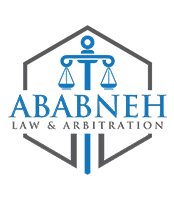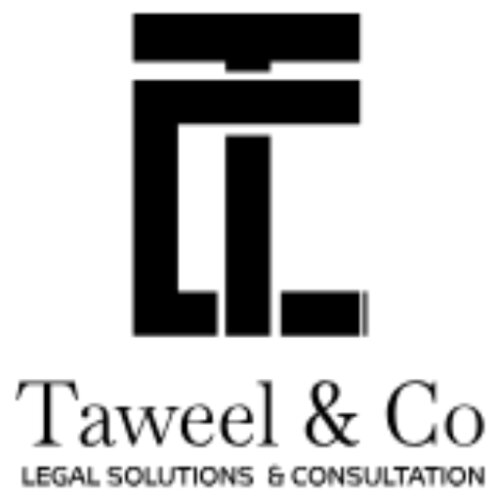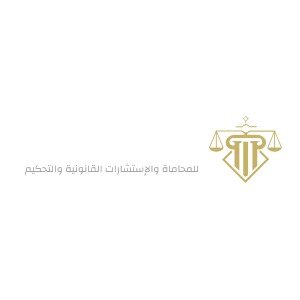Best Structured Finance Lawyers in Hashemite Kingdom of Jordan
Share your needs with us, get contacted by law firms.
Free. Takes 2 min.
Or refine your search by selecting a city:
List of the best lawyers in Hashemite Kingdom of Jordan
About Structured Finance Law in Hashemite Kingdom of Jordan
Structured finance refers to complex financial transactions that are designed to address specific financing needs not easily met by conventional financing products. In the Hashemite Kingdom of Jordan, structured finance often involves securitization, syndicated loans, asset-backed securities, and project financing, particularly in the energy, infrastructure, and real estate sectors. The legal framework governing structured finance in Jordan combines conventional financial laws with specialized regulations to promote financial innovation, manage risk, and protect both investors and issuers.
Why You May Need a Lawyer
Seeking legal advice in structured finance can be crucial for navigating the complexities of financial arrangements, ensuring compliance, and mitigating risk. Common scenarios where you may need a lawyer include:
- Structuring or participating in syndicated loans or securitization transactions
- Drafting and reviewing financing documentation, such as credit agreements and security packages
- Negotiating terms with financiers, sponsors, or third parties
- Assessing potential legal liabilities and regulatory compliance
- Resolving disputes or defaults arising from complex financial transactions
- Guiding foreign investors or multinational companies through local legal requirements
- Advising on tax implications and risk allocation strategies
Local Laws Overview
Jordan’s legal environment for structured finance draws on general financial, banking, capital markets, and insolvency laws, as well as regulations from relevant regulators such as the Central Bank of Jordan, the Jordan Securities Commission, and the Ministry of Industry, Trade and Supply. Key aspects include:
- Financial Institutions Law: Governs the licensing and operation of banks and non-bank financial institutions involved in structured finance transactions.
- Companies Law: Sets the legal framework for special purpose vehicles (SPVs), joint ventures, and project companies used in structured deals.
- Securities Law: Regulates the issuance, listing, and trading of asset-backed securities and other financial instruments.
- Secured Transactions and Collateral Law: Details the creation and enforcement of security interests over assets involved in structured transactions.
- Insolvency Law: Defines procedures for restructuring or liquidating insolvent debtors participating in structured finance arrangements.
- Foreign Investment Regulations: Impact cross-border transactions and participation by foreign entities in local projects.
All structured finance transactions in Jordan must comply with anti-money laundering regulations, foreign exchange controls, and taxation laws. Regulatory authorities may require disclosures, approvals, or licenses depending on the transaction's structure and participants.
Frequently Asked Questions
What types of structured finance transactions are common in Jordan?
Syndicated loans, securitization of receivables, project finance in infrastructure and energy, and asset-backed securities are among the most frequent types of structured finance deals in Jordan.
Who are the main regulators for structured finance in Jordan?
The Central Bank of Jordan, the Jordan Securities Commission, and the Ministry of Industry, Trade and Supply are the primary regulators overseeing various aspects of structured finance transactions.
Can foreign investors participate in structured finance transactions in Jordan?
Yes, foreign investors can participate, but their involvement is subject to foreign investment regulations, sector-specific restrictions, and sometimes additional approvals.
What is a special purpose vehicle (SPV) and how is it regulated in Jordan?
An SPV is a legal entity created solely for a specific transaction, often used to isolate risk. In Jordan, SPVs are usually registered as limited liability companies and must adhere to Companies Law and relevant sector regulations.
Are there restrictions on the types of assets that can be securitized?
Not all assets are eligible for securitization. The assets must generate predictable cash flows, be legally transferable, and comply with local laws. Regulatory approval may be needed for certain asset classes.
What documentation is required for a structured finance deal?
Key documents include credit and loan agreements, offering memoranda, security and collateral documents, agreements establishing SPVs, and regulatory filings. Legal review is critical for compliance and enforceability.
How are disputes resolved in structured finance cases?
Disputes may be resolved through negotiation, mediation, local court litigation, or international arbitration, depending on what is specified in the transaction documents.
What are the main risks in structured finance transactions in Jordan?
Legal and regulatory risk, counterparty risk, political and economic risk, currency risk, and enforceability of securities and collateral are all important considerations.
How does Jordan’s insolvency framework impact structured finance?
Jordan’s insolvency law provides for restructuring and liquidation. Proper structuring and legal due diligence can help protect creditors' interests in the event of insolvency.
Do structured finance transactions in Jordan require regulatory approval?
Depending on the type, size, and structure, some transactions require approval or registration with the Central Bank, Securities Commission, or other relevant authorities.
Additional Resources
- Central Bank of Jordan - For regulations applicable to banks and financial institutions
- Jordan Securities Commission - For rules regarding securities and capital markets
- Ministry of Industry, Trade and Supply - For company registration, SPVs, and foreign investment advice
- Jordan Investment Commission - For guidance on foreign investment matters
- Jordanian Bar Association - For finding qualified lawyers specializing in finance law
- Local law firms with expertise in banking and finance
- Published guidelines or circulars from the above authorities regarding structured finance or financial instruments
Next Steps
If you require legal assistance in structured finance, consider the following steps:
- Identify Your Needs: Clarify whether you need structuring advice, regulatory compliance, documentation help, or dispute resolution.
- Consult a Specialist: Engage a lawyer or law firm that has experience with structured finance in Jordan, ideally with a background in both local and cross-border transactions.
- Prepare Documentation: Gather all relevant documents and background information before your legal consultation.
- Understand Regulatory Requirements: Work with your legal advisor to identify necessary approvals, filings, or licenses.
- Follow Up: Stay informed throughout the process and ensure ongoing compliance with local laws and regulations to safeguard your interests.
Legal counsel can help you navigate complex structured finance transactions, manage risk, and achieve your financial objectives in the Hashemite Kingdom of Jordan.
Lawzana helps you find the best lawyers and law firms in Hashemite Kingdom of Jordan through a curated and pre-screened list of qualified legal professionals. Our platform offers rankings and detailed profiles of attorneys and law firms, allowing you to compare based on practice areas, including Structured Finance, experience, and client feedback.
Each profile includes a description of the firm's areas of practice, client reviews, team members and partners, year of establishment, spoken languages, office locations, contact information, social media presence, and any published articles or resources. Most firms on our platform speak English and are experienced in both local and international legal matters.
Get a quote from top-rated law firms in Hashemite Kingdom of Jordan — quickly, securely, and without unnecessary hassle.
Disclaimer:
The information provided on this page is for general informational purposes only and does not constitute legal advice. While we strive to ensure the accuracy and relevance of the content, legal information may change over time, and interpretations of the law can vary. You should always consult with a qualified legal professional for advice specific to your situation.
We disclaim all liability for actions taken or not taken based on the content of this page. If you believe any information is incorrect or outdated, please contact us, and we will review and update it where appropriate.
Browse structured finance law firms by city in Hashemite Kingdom of Jordan
Refine your search by selecting a city.
















